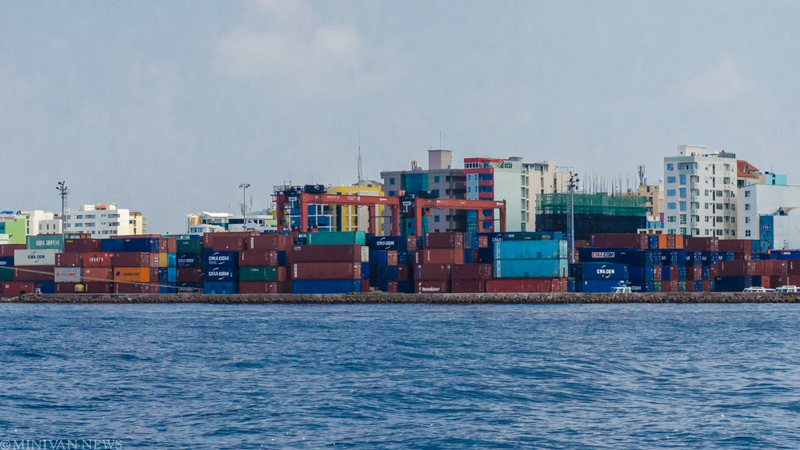The opposition has alleged corruption in a new government deal with a Dubai-based marine terminal operator to establish a commercial port and free trade zone near Malé.
Opposition members have criticised the deal over an apparent lack of transparency, noting the government had signed an MoU with Dubai Ports (DP) World last month without an open bidding process.
DP World, among the world’s largest ports operators, is expected to invest up to US$300 million in a deep-water complex on the industrial island of Thilafushi, and create hundreds of jobs for Maldivians according to the government.
Tourism minister Ahmed Adeeb said the government will sign an agreement for a joint-venture company with DP World this month.
Former MP and MDP member Visam Ali said DP World was only interested in the Maldives to protect its multi-billion dollar port in India’s Cochin.
“Dubai World has already made a huge investment in the Maldives region. There are three main ports in this region, Colombo, Tutticorin and Cochin. Dubai World has made a US$2billion investment in the Cochin port, to handle a million containers at the same time,” she said at a rally in Kulhudhuffushi this weekend.
“Their only reason to invest in the Maldives is to protect that investment, because if there is a major port in the Maldives their investment in the Cochin port will fail. Maldives’ strategic location will make a port here more beneficial to traders. So Dubai World knows if there is a major port in the Maldives, their Cochin port will not be economically viable. So they are attempting to take control of the Maldives port. There is black money in this.”
Adeeb and DP World were unavailable for comment at the time of going to press.
Meanwhile, London-based maritime analysts Drewry Equity have characterised DP World’s interest in the Maldives as an attempt to take on Colombo’s position in the Indian Ocean, as the Maldives is “more strategically ideal as a cross-road between Far East-Europe and Far East-Africa trade lanes than the Colombo port.”
However, a Maldives port may “cannibalise” transshipment volume at DP World’s main port at Jebel Ali, Drewry said, adding that the best strategy for the company would be to operate the Maldives port as a low margin facility, possibly in partnership with a shipping line.
The maritime research organisation also said Maldives as a transshipment hub “is a digression from DP World’s core strategy of handling higher gateway cargoes, which allows for higher margins.”
Ruling Progressive Party of the Maldives MP Ahmed Nihan last week said the port was a first step in transforming the country into Singapore.
